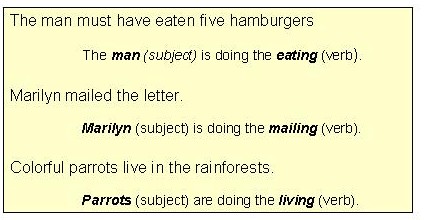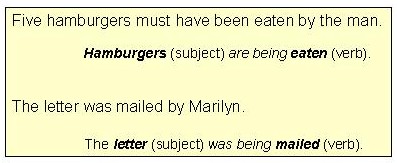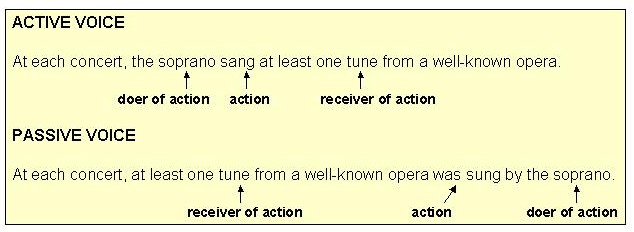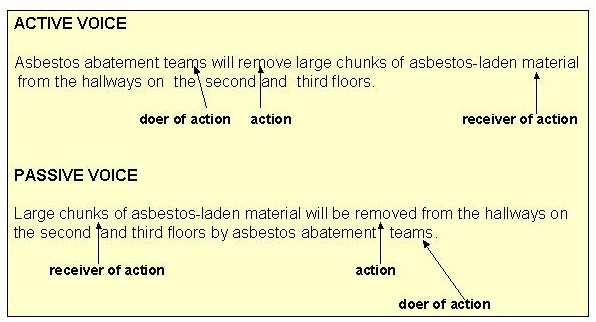ACTIVE AND PASSIVE VOICE
Active voiceIn most English sentences with an action verb, the subject performs the action denoted by the verb.
These examples show that the subject is doing the verb's action.

Because the subject does or "acts upon" the verb in such sentences, the sentences are said to be in the active voice.
Passive voice
One can change the normal word order of many active sentences (those with a direct object) so that the subject is no longer active, but is, instead, being acted upon by the verb - or passive.
Note in these examples how the subject-verb relationship has changed.

Because the subject is being "acted upon" (or is passive), such sentences are said to be in the passive voice.
NOTE: Colorful parrots live in the rainforests cannot be changed to passive voice because the sentence does not have a direct object.
To change a sentence from active to passive voice, do the following:
1. Move the active sentence's direct object into the sentence's subject slot

2. Place the active sentence's subject into a phrase beginning with the preposition by

3. Add a form of the auxiliary verb be to the main verb and change the main verb's form

Because passive voice sentences necessarily add words and change the normal doer-action-receiver of action direction, they may make the reader work harder to understand the intended meaning.
As the examples below illustrate, a sentence in active voice flows more smoothly and is easier to understand than the same sentence in passive voice.


It is generally preferable to use the ACTIVE voice.
To change a passive voice sentence into an active voice sentence, simply reverse the steps shown above.
1. Move the passive sentence's subject into the active sentence's direct object slot

2. Remove the auxiliary verb be from the main verb and change main verb's form if needed

3. Place the passive sentence's object of the preposition by into the subject slot.

Because it is more direct, most writers prefer to use the active voice whenever possible.
The passive voice may be a better choice, however, when
- the doer of the action is unknown, unwanted, or unneeded in the sentence

- the writer wishes to emphasize the action of the sentence rather than the doer of the action

- the writer wishes to use passive voice for sentence variety.